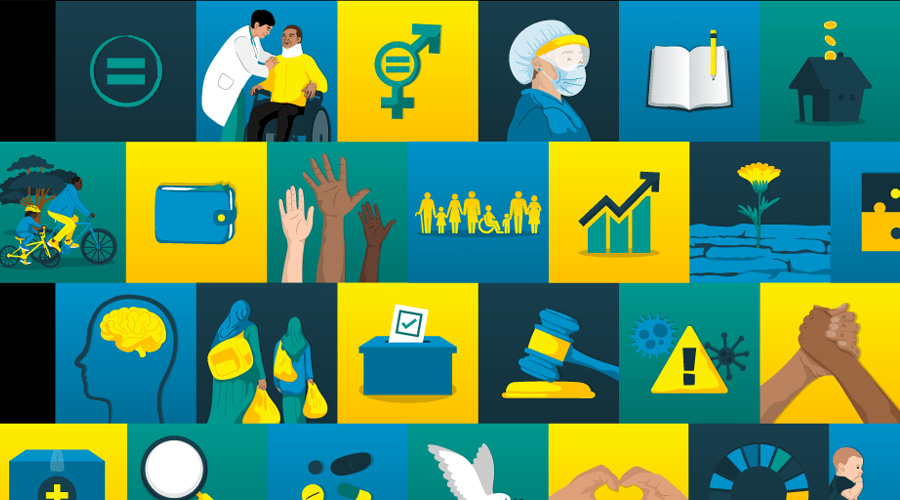
Let’s explore why healthcare needs smart contracts and how they can improve efficiency in the industry
The healthcare industry is in dire need of an overhaul when it comes to its operational efficiency. Smart contracts offer a viable solution to this problem, bringing cost-saving benefits and increased transparency to the entire process. In this blog post, we will explore why healthcare needs smart contracts and how they can improve efficiency in the industry. We’ll look at the many advantages that smart contracts offer and how they could revolutionize the way healthcare organizations work. Finally, we’ll discuss the potential obstacles and challenges that healthcare organizations may face in adopting smart contracts.
current inefficiencies in healthcare
Healthcare is a complex and expensive industry that affects the lives of millions of people around the world. Unfortunately, many healthcare systems are plagued with inefficiencies and outdated practices that cause frustration for providers and patients alike. Some of the most common inefficiencies in healthcare include:
- Long wait times: Patients often experience long wait times when they go to a doctor’s office or hospital, making it difficult to get timely care.
- Miscommunication: Mistakes in communication can lead to medical errors and delays in care.
- High costs: Healthcare costs can be incredibly high due to administrative overhead, prescription drug prices, and insurance premiums.
- Lack of data interoperability: Electronic health records (EHR) systems have been introduced in many countries, but there is still a lack of interoperability between different EHR systems. This makes it difficult for providers to access patient data when needed.
- Complex regulatory requirements: Healthcare organizations must comply with numerous regulations, including HIPAA, which can add complexity and cost to their operations.
These inefficiencies can lead to costly mistakes, delays in care, and frustration among patients, providers, and administrators. If these problems remain unsolved, healthcare will remain inefficient and inaccessible for many.
how smart contracts can help
Smart contracts are digital agreements that are coded and stored on the blockchain, and can be used to facilitate, verify, and enforce transactions between parties. Smart contracts are self-executing and trustless, meaning they don’t require a third-party intermediary or middleman to be successful. This eliminates time-consuming paperwork, manual data entry, and laborious record-keeping.
Smart contracts are designed to automate processes, streamline operations, and reduce costs in almost any industry, including healthcare. In healthcare, smart contracts can help improve efficiency by simplifying communication and coordination between different stakeholders in the healthcare ecosystem.
For example, a smart contract could be used to securely store patient information and allow for efficient data sharing between healthcare providers and insurance companies. This could reduce the need for manual data entry and paperwork, saving time and reducing the chances of costly errors.
Another application of smart contracts is in the payment processing sector. Smart contracts can enable automated payments between providers, insurers, and patients. This could help eliminate unnecessary delays in reimbursements and reduce paperwork related to claims. By automating the payment process, healthcare organizations can free up resources to focus on more important tasks like providing quality patient care.
potential applications for smart contracts in healthcare
Smart contracts have the potential to revolutionize healthcare by streamlining processes, improving data security and increasing efficiency. Smart contracts can be used in a variety of ways, such as:
- Automating Claims Management: By using smart contracts, healthcare providers can automate claims management and reduce administrative costs. This will also help to ensure that all necessary information is present and correct, thus speeding up the claims process.
- Streamlining Payments: Smart contracts can be used to manage payments between patients and healthcare providers in a secure and efficient manner. For instance, a smart contract could be used to automatically process payments when a service has been provided.
- Securing Medical Records: Smart contracts can be used to secure medical records, ensuring that only authorized personnel have access to sensitive patient data. This will help protect patient privacy and make sure that only the right people have access to medical information.
- Improving Supply Chain Management: Smart contracts can be used to improve supply chain management within the healthcare sector. By automating the tracking of supplies and equipment, healthcare providers can ensure that patients are receiving the care they need in a timely manner.
- Managing Patient Data: Smart contracts can also be used to manage patient data. For example, a smart contract could be used to store and retrieve patient medical histories, allowing for faster diagnosis and treatment.
Overall, smart contracts have the potential to revolutionize healthcare by streamlining processes, improving data security, and increasing efficiency. By utilizing these technologies, healthcare providers can ensure that their patients receive the best possible care in a safe and secure manner.
benefits of using smart contracts in healthcare
Smart contracts offer an array of benefits to the healthcare industry. Smart contracts are automated and self-executing, meaning they can be deployed quickly and efficiently with minimal manual intervention. This could drastically reduce paperwork, administrative costs, and the time needed for the completion of tasks.
Smart contracts also ensure accuracy and eliminate errors from manual entry or missed steps. This reduces the risk of miscommunication between departments and creates a secure system for data storage. Smart contracts also provide a platform for secure and encrypted transactions, eliminating the need for third-party intermediaries and associated fees. This can lead to significant cost savings as well as improved data security.
Finally, smart contracts provide visibility and auditability into processes. This ensures that all involved parties can view the progress of a process in real-time and know what the expected results will be. This helps build trust among all stakeholders, improving transparency, accountability, and efficiency.
Overall, smart contracts are a powerful tool that can bring much-needed efficiency to the healthcare industry. With the ability to automate processes and reduce errors, they can help reduce costs and improve data security. They can also help improve transparency and trust between all stakeholders, creating an environment where everyone is on the same page and working together to achieve the best possible outcomes.



















